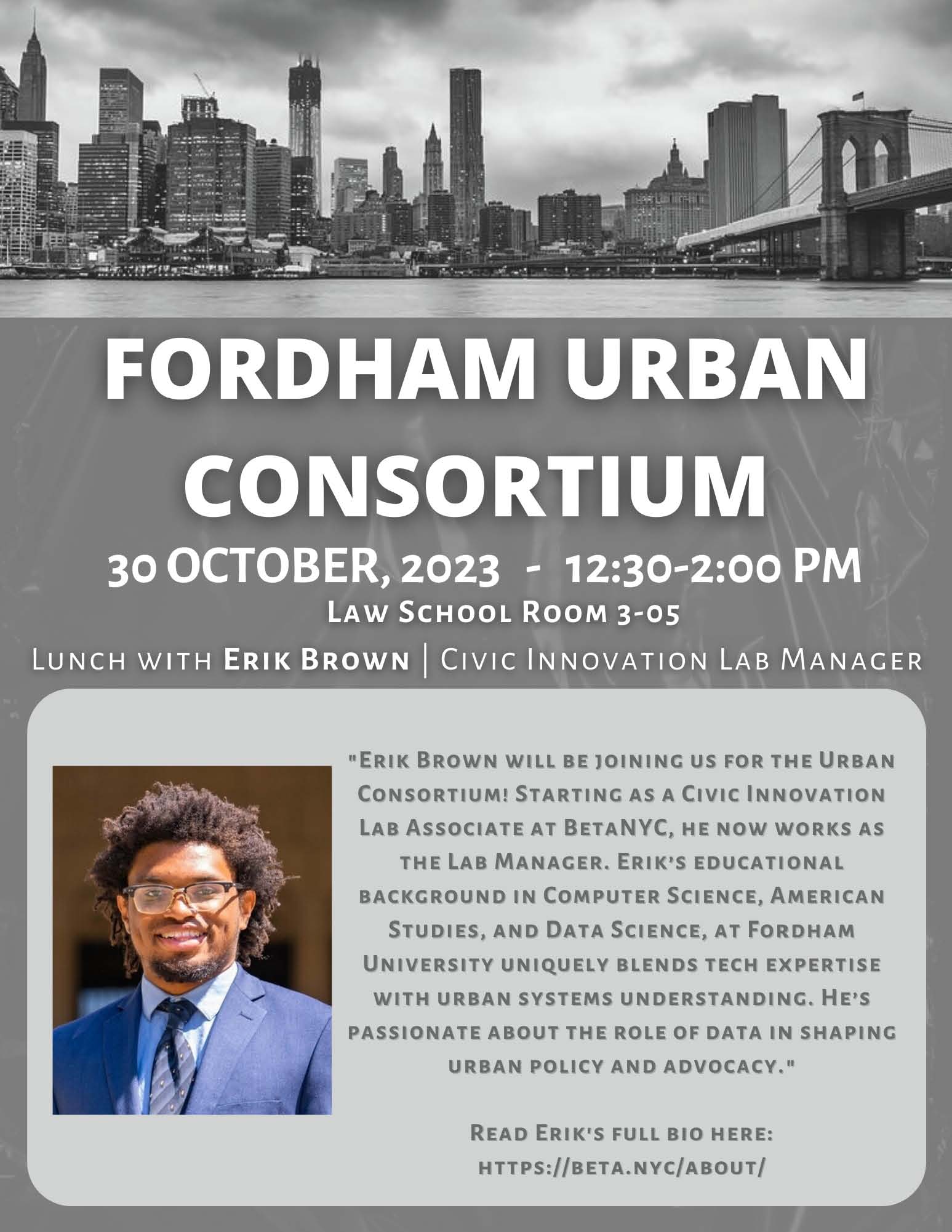Urban Consortium Events
Urban Consortium Lunch with Erik Brown

The Urban Consortium will host its first post-pandemic in-person lunch on Monday, October 30, from 12:30-2pm at the Law School. Erik Brown, Civic Innovation Lab Manager at BetaNYC and Fordham alumnus, will join us for lunch, and we look forward to getting to know more about his work and think about opportunities for collaboration. BetaNYC has already done a number of interesting and fruitful collaborations around education and data, so this will be a great opportunity to get to know more about their work.
We hope you will be able to join us for a great lunch and conversation!